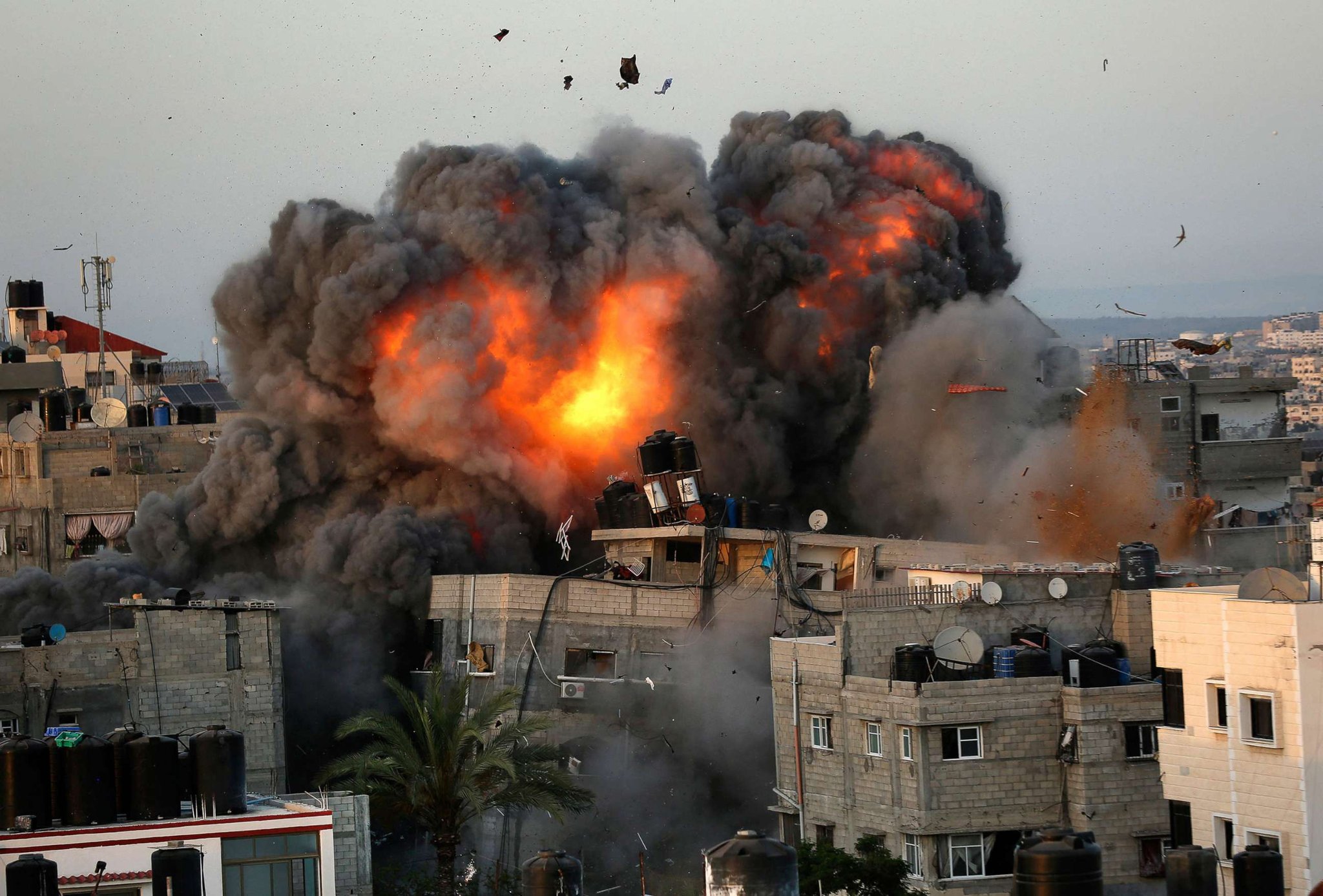The negotiations are also taking place under a climate of cautious optimism as the region witnessed heightened tensions in recent months.
A new round of Gaza ceasefire talks is set to kick off in Doha on Thursday following a prolonged stalemate in hopes of hashing out the remaining gaps between Israel and Hamas.
The talks are taking place after the leaders of mediating countries Qatar, Egypt and the United States issued a joint statement on August 8, calling for the resumption of negotiations.
The leaders had stressed that “the time has come to conclude” a deal that would result in the release of captives from Hamas and a complete ceasefire in the Gaza Strip, where Israel’s, widely known as genocidal, war persisted for more than 10 months.
The talks are gathering officials from Qatar, the U.S., Egypt and Israel as reports claimed that Hamas will not be present and will hold discussions on the sidelines of the negotiations instead.
In a statement to Al-Araby Al-Jadeed on Wednesday, Suhail Al-Hindi, a member of Hamas’s political bureau, reiterated his group’s insistence on a return to U.S. President Joe Biden’s initial ceasefire plan, which the group said Israel has blocked.
Al-Hindi echoed a statement issued by Hamas on Sunday, where it demanded a plan that would obligate Israel to implement the ceasefire and captives release deal instead of back and forth negotiations.
In a press briefing in Washington on Tuesday, State Department spokesman Vedant Patel said Qatar assured the U.S. that “they will work to have Hamas represented.”
The U.S. negotiating team will include Biden’s top Middle East adviser Brett McGurk as well as CIA director Bill Burns.
The office of Israeli Prime Minister Benjamin Netanyahu confirmed that he approved the departure of a delegation to Doha and “the mandate for conducting the negotiations.” A spokesperson for Netanyahu told AFP that his political adviser Ophir Falk will be at the talks.
Meanwhile, the eve of the talks saw separate phone calls between Qatar’s Prime Minister and Minister of Foreign Affairs, Sheikh Mohammed bin Abdulrahman Al-Thani, and U.S. Secretary of State Antony Blinken as well asTurkish Foreign Minister Hakan Fidan.
Both phone calls dealt with efforts to reach “an immediate and enduring ceasefire” in the Gaza Strip as well as regional de-escalation.
Biden’s proposal
The negotiations in Doha are set to build on Biden’s proposal from May 31 that was met with a majority vote at the United Nations Security Council.
The three-stage proposal would pave the way for a complete ceasefire in the Gaza Strip and the withdrawal of Israeli forces.
During the first phase, a six-week ceasefire would take place to enable the release of Israeli captives held by Hamas, including the remains of those killed, as well as Palestinian prisoners in Israeli jails.
Negotiations would take place throughout the first six weeks and Israeli forces would withdraw from populated areas in the Gaza Strip. The same phase would allow Palestinian civilians to return to their homes and enable the “safe and effective distribution of humanitarian assistance”.
The second phase would result in “a permanent end to hostilities” in exchange for the release of all other captives in Gaza and the full withdrawal of Israeli forces.
By the third phase, a “multi-year reconstruction plan for Gaza” would begin and the remains of all other captives would be returned to their families.
Heightened regional tensions
The negotiations are also taking place under a climate of cautious optimism as the region witnessed heightened tensions in recent months.
The increased regional tensions were fueled by Israel’s assassination of Hamas political chief Ismail Haniyeh in Tehran on July 31 and the Israeli assassination of Hezbollah commander Fouad Shukur in Beirut on July 30.
While Israel claimed the attack in Beirut, it has yet to claim responsibility for the killing of Haniyeh despite global condemnations, including from mediators Qatar and Egypt.
Iran and Hezbollah have since vowed to retaliate against Israel, raising fear over further escalation within the region.
Three senior Iranian officials told Reuters on Tuesday that a ceasefire deal in Gaza would stop Iran’s direct retaliation against Israel.
The officials said Iran was sending a representative to the talks in Doha, but Tehran’s mission to the UN in New York later told the news agency that it will not have representation at the discussions.
Late last year, mediation efforts led to a truce that resulted in the release of 109 Israeli captives out of 251 held by Hamas and 240 Palestinians from Israeli prisons, some of whom have since been re-arrested by Israeli forces.
Indirect talks between Israel and Hamas have stalled since the expiration of the truce, with Israeli occupation forces intensifying the brutal onslaught while rejecting demands for a complete ceasefire and withdrawal from the Gaza Strip.
Since October 7, Israel has killed around 40,000 people in the Gaza Strip, mainly women and children, while causing a dire humanitarian catastrophe.
The war also displaced at least 1.9 million people out of the besieged enclave’s population of 2.1 million – down from the UN’s initial estimate of 2.3 million, following the deaths and exodus of people fleeing for safety.







